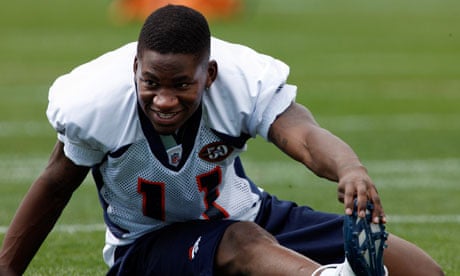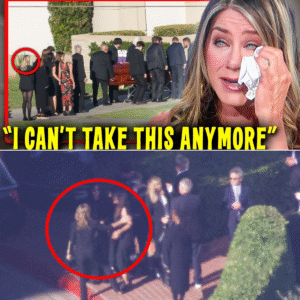Some pain makes no noise.
Some deaths go unnoticed… until it’s too late.
When Kenny McKinley first arrived in Denver, he was just a skinny kid with bright eyes and a smile that never seemed to leave his face.
He wasn’t a media darling. He wasn’t hyped on ESPN. But everyone who trained with him agreed:
“Kenny was always the first to show up… and the last to leave.”
He never complained. He never acted entitled. All he wanted was to play — even if it was just a few reps on special teams, a couple of routes during practice squad sessions.
He was always ready.

A dream traded for silence
McKinley was the all-time leading receiver at the University of South Carolina — even surpassing names like Sidney Rice.
He had the speed, the hands, the instincts — but more than that, he had heart.
When the Denver Broncos drafted him in the 5th round in 2009, he wasn’t naïve. He knew he had to work twice as hard to even get noticed.
And he did exactly that.
But football doesn’t always reward those who wait.

Injury, depression, and the invisible pain
In 2010, McKinley suffered a severe knee injury. His career — barely beginning — was now paused indefinitely.
He fell into depression, yet he still… smiled.
Friends said Kenny kept texting jokes, saying he’d be back soon. But when the schedule was gone, when the playbook closed, when the pads were off…
Silence took over.
No one — not coaches, not teammates — realized that the happy kid with the soft laugh was drowning in hopelessness.

September 20, 2010 – A quiet death in a quiet apartment
Kenny McKinley took his own life with a handgun in his Colorado home.
In that quiet room, police found a handwritten note — jumbled thoughts, pain, despair.
He was only 23 years old.
His career hadn’t even begun.
No scandal. No mistakes. Just a heart too heavy to carry in silence.

The tragedy of invisibility
The NFL celebrates touchdowns, sacks, wins, and warriors.
But sometimes, it forgets the quiet ones, the ones hurting in ways no one can see.
Kenny McKinley wasn’t the first NFL player to struggle with mental health.
But his death was a slap in the face to an ignorant system:
“Players aren’t robots. They feel. They bleed. They need someone to ask: ‘Are you okay?’”





